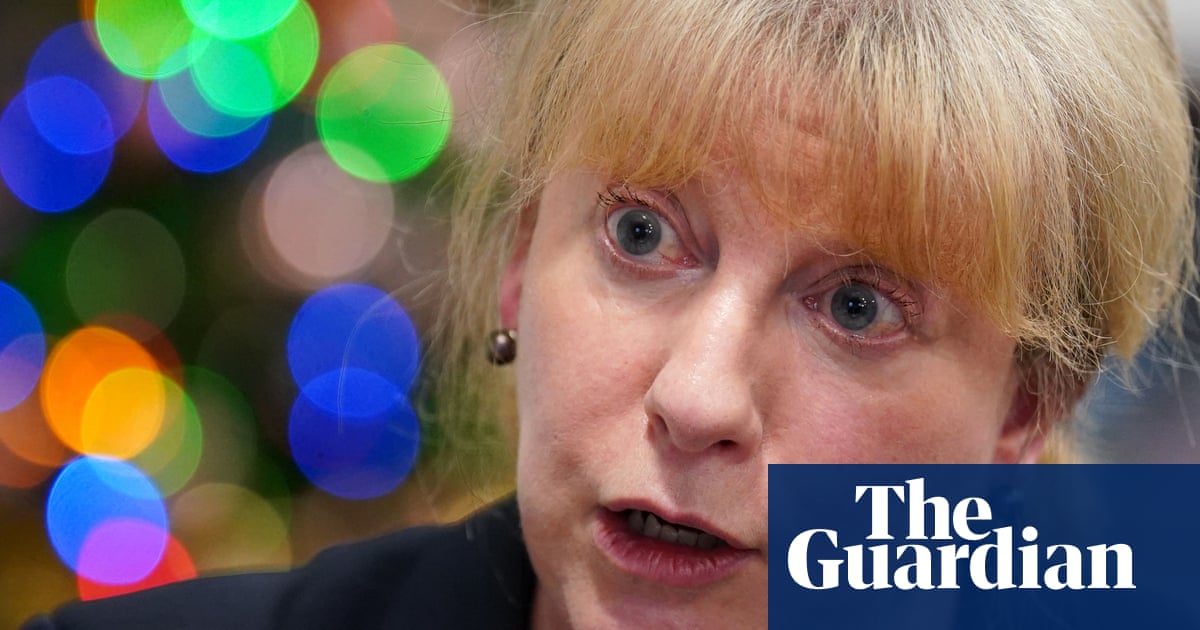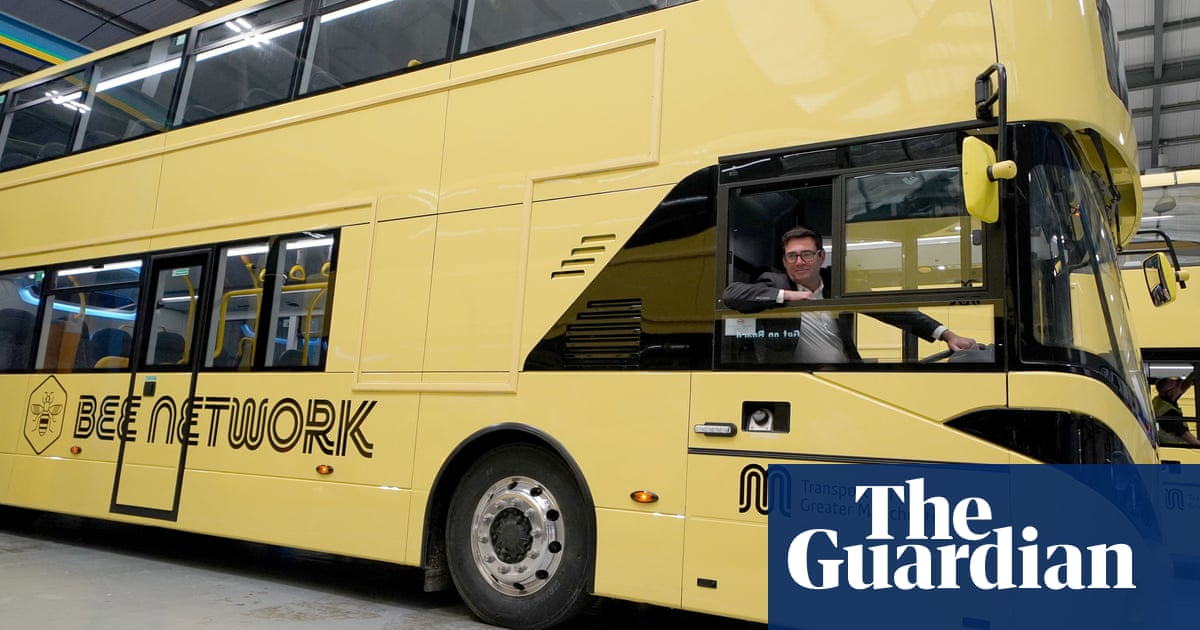
Bus services in Greater Manchester will be brought under public control, with one integrated service to replace the dozens of private operations in a “broken market”, the city’s mayor, Andy Burnham, has announced.
The decision to press ahead with a franchising system would mean more joined up and affordable travel, accountable to the public, Burnham said, in what would be the first reverse of the deregulation of the bus industry by the Thatcher government in the 1980s.
The buses will all have the same livery, and a London-style ticketing system that caps the price on multiple bus and tram trips will be introduced. Routes, fares and schedules will be set by the local authority and the services franchised out to private operators to run.
The first services are planned in 2023 for Wigan and Bolton, the two boroughs without Metrolink trams and the poorest-served by public transport, and all routes will be under the city’s control by 2025, Burnham said.
He acknowledged that introducing franchising would be initially costly, with a £135m investment in the first five years of the transition, but said “the economic and social cost of failing to go down the franchising path” would be much greater, with local authorities paying millions in subsidies to private bus operators each year.
Burnham said plans would follow to bring local rail services into an integrated Greater Manchester transport system by the end of the decade. However, he said there was much work to be done, including “robustly defending our position from legal challenges by operators”.
Stagecoach, the biggest bus operator in Greater Manchester, last month launched legal action to try to block the process, and expects a hearing for a judicial review in late May. Stagecoach said it was disappointed and surprised that the mayor had chosen to push ahead with these proposals before the outcome of the judicial review process.
It said the planned franchising scheme would see above-inflation fare increases, and that a better approach would be a partnership – an option outlined in the bus strategy that was published last week by the government.
Burnham denied the claim that fares would rise, and said he was confident of seeing off the court action. He added: “My message to the operators will be: these are powers given to us by parliament, and 80% of the public support this – work with us to give us the system they want to see.”
Campaigners said the decision would be “ absolutely gamechanging for public transport” in the region. Pascale Robinson, from Better Buses for Greater Manchester, said: “For too long private bus operators have used our buses as a cash cow, sucking juicy profits out of the network while cutting routes and undermining the rights and conditions of workers. Today’s decision is an important step in consigning that deregulated system into the dustbin of history.”
Nine out of 10 council leaders had urged Burnham to choose franchising, and a public consultation showed more than 80% of the public backed bringing buses under public control.
IPPR North, a thinktank, said the decision to re-regulate was excellent news. Jonathan Webb, a senior research fellow, said: “From achieving net zero carbon emissions to building an inclusive economic recovery – strong, locally controlled bus networks are essential. It’s time for combined authorities across the country to move to franchise their bus networks too.”
Tyne and Wear was defeated in an attempt to regulate its bus services in 2015, before greater powers to run buses were granted to new metro mayors under devolution to cities in 2017. However, the hurdles to reform – and intense opposition from the bus operators – have made it a slow and laborious process.












